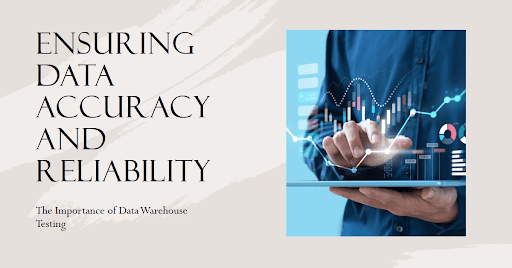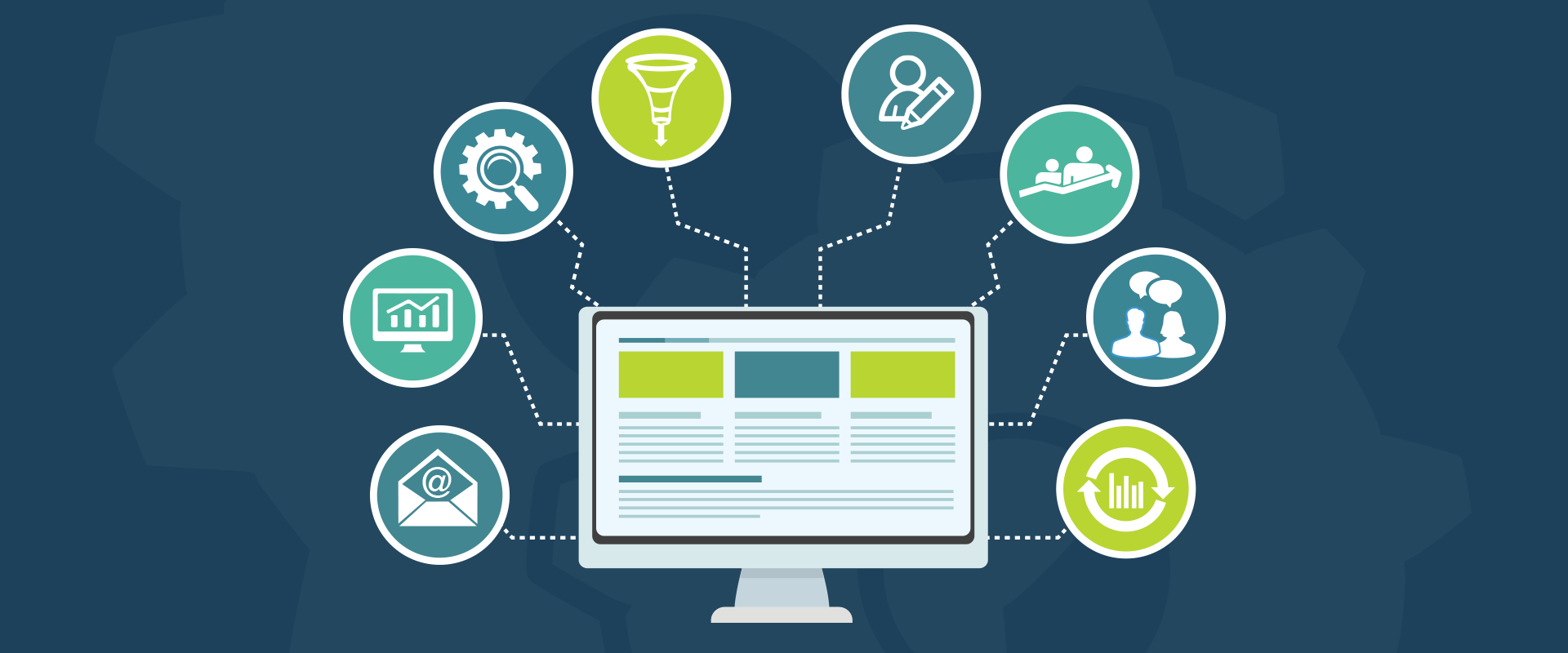Ensuring Data Accuracy and Reliability: The Importance of Data Warehouse Testing
samanvya September 9, 2023 0 COMMENTS
The business reliance on big data and analytics tools is increasing due to the impact of on decision-making. Despite being the ideal tools for decision-making, the impacts of data analytics can only be significant if the data analyzed is ideal for desired decisions.
This calls for wide-scale warehouse testing, which is the process all data must undergo before being fed into big data analytics systems.
Data warehouse testing is committed to data accuracy, integrity, reliability, and quality. All these aspects are critical for businesses in various ways, especially analytics and decision-making. The process can also be applied later after the results are published and processed.
Therefore, businesses must enforce stringent warehouse data testing, which has the following benefits.
Table of Contents
1. Data Verification
Data verification is a process of determining the data’s suitability and integrity for the anticipated needs. Once data is collected, the data warehouse testing will review it to determine its suitability for business analytics and produce the anticipated results.
For instance, a company that wants to make market expansion decisions will ensure the data is suitable by focusing on customer volumes, segments, purchase decisions, expansion costs, etc. This scrutiny process ensures the data produces the desired results by eliminating unnecessary data affecting the outcome or decision confidence.
Data integrity will be tested based on the data’s reliability and sources. The data sources will focus on issues such as where the data is generated and whether the sources can be trusted or relied on for various functions.
The scrutiny of the sources ensures that the business makes decisions based on real market data and actual situations. Further verification practices can also focus on data accuracy, defined in terms of data consistency and quality, and reflect the information required.
You can rely on automated data warehouse testing systems to ensure data accuracy, reliability, and integrity. Automated data warehouse testing tools are significant for eliminating common challenges of data warehouse testing. With such tools, the testing system will no longer be affected by large data volumes, inefficient procedures, data loss risks, and other duplication challenges.
Automated data warehouse testing results are accurate, reliable, and verified data. These tools can be enforced at different stages, such as data collection, analysis, processing, etc.
2. Impact on Data Analysis and Analytics
Data warehouse testing involves strategies to ensure the data to be processed is accurate and reliable data. If data is reliable and the integrity levels are high, the data analytics will be much easier; hence the results from the data analytics are reliable and accurate.
Data analytics is an extensive process to ensure the results are reliable and critical for decision-making. This process may take a lot of time to ensure all the data to be processed are reliable and from verifiable sources. Testing ensures the data analytics process is shorter since it accomplishes various activities such as data verification.
During testing, the data will be tested for aspects such as uniformity which means that all the data to be analyzed are in uniform formats, units, and other aspects. This facilitates faster data analytics processes.
3. Reputational Issues
Data warehouse testing is about more than just accuracy, integrity, and reliability. It also involves testing other elements to ensure data compliance with data regulations. For instance, all the data must meet privacy, confidentiality, and integrity aspects covered by data regulations.
These compliance regulations also apply to the results and the data tested by the company. In case of any violations, the business could face significant fines and legal suits, which have a reputational impact on the business.
Such violations could also lead to public discussions, such as data misuse and overreliance on customer data. This will likely lead to negative customer perception of the business and unwillingness to share their data in the future. Issues such as data breaches can lead to financial consequences, which can further affect company financials and revenues.
4. Error Minimization
In the digital operations and services era, every business decision depends on big data analytics. These analytics outcomes are significant for business decision-making in various functions and critical operations. Data analytics follow the GIGO principle: garbage in, garbage out. To ensure reliable results, you need to verify and test the data to ensure it meets certain criteria.
Failure to do all the critical tests could compromise business decisions and lead to negative impacts. For instance, business analytics with limited, wrong, and unverified sources can produce positive results for decisions such as expansion. The expansion may not be successful since the data was incomplete, the sources were not authentic, and the provided was unreliable.
5. Reduced Cost of Fixing Data Errors
Data warehouse testing significantly boosts confidence in data quality, which is essential for business analytics models. After testing the data repeatedly, the confidence levels rise since the team is assured of data suitability for the decision and data analytics processes. The earlier these errors are spotted, the easier it is to correct them rather than alter them when analytics are complete and the results are unsatisfactory.
Reliable testing ensures outcomes are error-free and the test results are reliable. The cost of fixing errors after a decision is made and capital is spent is irreversible; hence you need the data warehouse testing to identify these errors early.
Failure to identify these errors earlier can lead to losses in the organization, and some of these losses cannot be fixed, and the effects can spread further.
Conclusion
Data warehouse testing is significant for critical business analytics processes and subsequent decision-making. To accomplish the process better, there is a need to enforce automated data warehouse testing tools and deal with data testing challenges.
Therefore, you must implement the process at all stages of data management.
RELATED ARTICLES
Latest Articles
 Creating Dynamic Content Calendars Within a Headless CMSIn TipsMarch 27, 2025When you’re syndicating content for different […]
Creating Dynamic Content Calendars Within a Headless CMSIn TipsMarch 27, 2025When you’re syndicating content for different […] Florida’s Harsh Sun & Your Car: How to Prevent Paint Damage with PPFIn AutomotiveMarch 27, 2025Florida is known for its year-round sunshine, but that […]
Florida’s Harsh Sun & Your Car: How to Prevent Paint Damage with PPFIn AutomotiveMarch 27, 2025Florida is known for its year-round sunshine, but that […] 5 Cool Apps You Probably Didn’t Know AboutIn AppMarch 19, 2025We’ve all heard of mainstream apps such as Facebook, […]
5 Cool Apps You Probably Didn’t Know AboutIn AppMarch 19, 2025We’ve all heard of mainstream apps such as Facebook, […] Top 5 Most Downloaded Apps in the App Store in 2024In TipsMarch 13, 2025The App Store continues to be a hotspot for new and […]
Top 5 Most Downloaded Apps in the App Store in 2024In TipsMarch 13, 2025The App Store continues to be a hotspot for new and […] Top 5 Digital PR and Link-Building Agencies in 2025 for SEO GrowthIn TechnologyMarch 10, 2025In 2025, digital PR and quality backlinks will be […]
Top 5 Digital PR and Link-Building Agencies in 2025 for SEO GrowthIn TechnologyMarch 10, 2025In 2025, digital PR and quality backlinks will be […] How Long To Soak Chia Seeds: A Simple GuideIn TipsFebruary 11, 2025Chia seeds are little round black seeds that have […]
How Long To Soak Chia Seeds: A Simple GuideIn TipsFebruary 11, 2025Chia seeds are little round black seeds that have […] How to Spot Fake Software Licenses and Avoid ScamsIn TechnologyFebruary 4, 2025Image Credit: pexels.com In today’s complex […]
How to Spot Fake Software Licenses and Avoid ScamsIn TechnologyFebruary 4, 2025Image Credit: pexels.com In today’s complex […] What Factors Should Businesses Consider When Choosing A SIP Trunk Provider?In TechnologyFebruary 1, 2025Under the conditions that are related to running a […]
What Factors Should Businesses Consider When Choosing A SIP Trunk Provider?In TechnologyFebruary 1, 2025Under the conditions that are related to running a […] Best ATV Rentals in Dubai for Unforgettable Desert SafarisIn TravelJanuary 29, 2025Image Credit: pexels.com Dubai is a city that offers […]
Best ATV Rentals in Dubai for Unforgettable Desert SafarisIn TravelJanuary 29, 2025Image Credit: pexels.com Dubai is a city that offers […] The Evolution of Paint Protection Film: Innovations You Need to KnowIn TechnologyJanuary 26, 2025Over the years, Paint Protection Film (PPF) has […]
The Evolution of Paint Protection Film: Innovations You Need to KnowIn TechnologyJanuary 26, 2025Over the years, Paint Protection Film (PPF) has […] Your Ultimate Guide to Local SEOIn MarketingJanuary 17, 2025Local SEO can be defined as optimization of the online […]
Your Ultimate Guide to Local SEOIn MarketingJanuary 17, 2025Local SEO can be defined as optimization of the online […] Top 5 Reasons Why the Organic Traffic Is Really Beneficial for BusinessesIn MarketingJanuary 16, 2025Many companies invest heavily in SEO, with the […]
Top 5 Reasons Why the Organic Traffic Is Really Beneficial for BusinessesIn MarketingJanuary 16, 2025Many companies invest heavily in SEO, with the […]
stopie.com is a participant in the Amazon Services LLC Associates Program, an affiliate advertising program designed to provide a means for sites to earn advertising fees by advertising and linking to Amazon.com.
Clicking on an Amazon link from stopie.com does not increase the cost of any item you purchase.
We will only ever link to Amazon products that we think our visitors may be interested in and appreciate learning more about.




